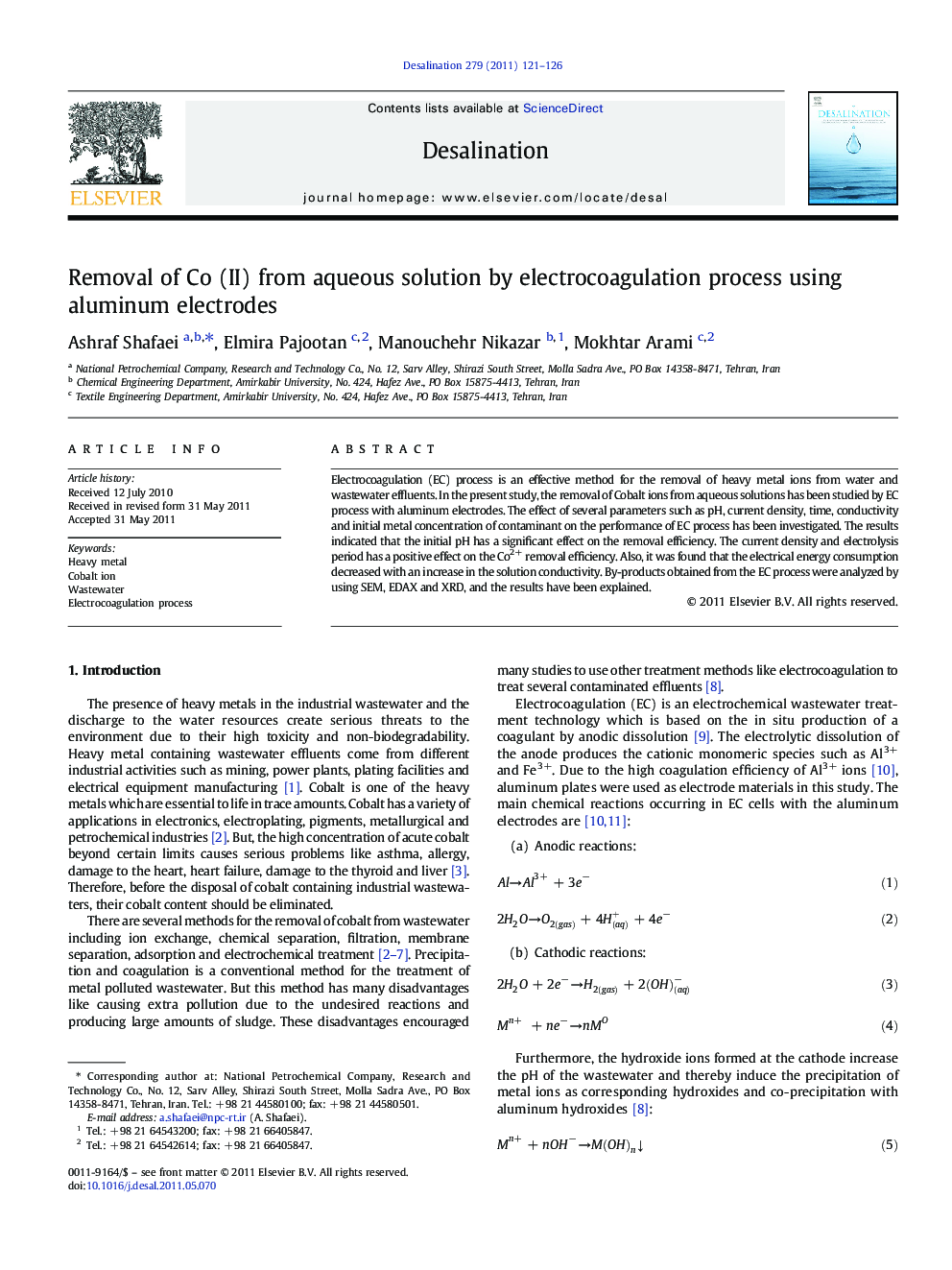| Article ID | Journal | Published Year | Pages | File Type |
|---|---|---|---|---|
| 624891 | Desalination | 2011 | 6 Pages |
Electrocoagulation (EC) process is an effective method for the removal of heavy metal ions from water and wastewater effluents. In the present study, the removal of Cobalt ions from aqueous solutions has been studied by EC process with aluminum electrodes. The effect of several parameters such as pH, current density, time, conductivity and initial metal concentration of contaminant on the performance of EC process has been investigated. The results indicated that the initial pH has a significant effect on the removal efficiency. The current density and electrolysis period has a positive effect on the Co2+ removal efficiency. Also, it was found that the electrical energy consumption decreased with an increase in the solution conductivity. By-products obtained from the EC process were analyzed by using SEM, EDAX and XRD, and the results have been explained.
Research highlights► Electrocoagulation is an effective method to remove cobalt ions from aqueous solutions. ► The current density and electrolysis time has a positive effect on the Co2+ removal efficiency. ► The electrical energy consumption decreased with an increase in the solution conductivity. ► The removal rate of Co2+ followed a first-order kinetic model. ► Direct cathodic deposition has insignificant effect on the cobalt removal.
